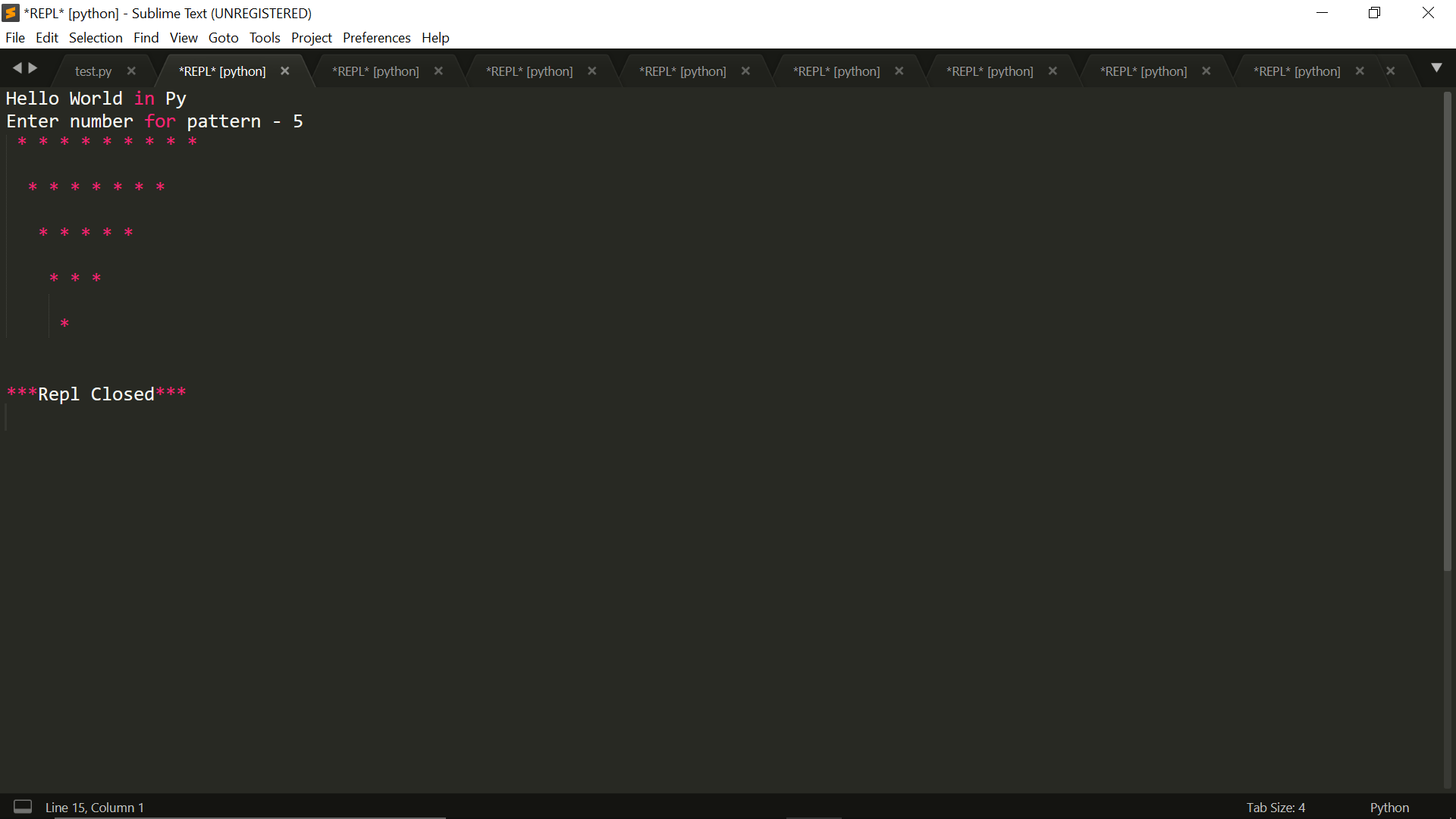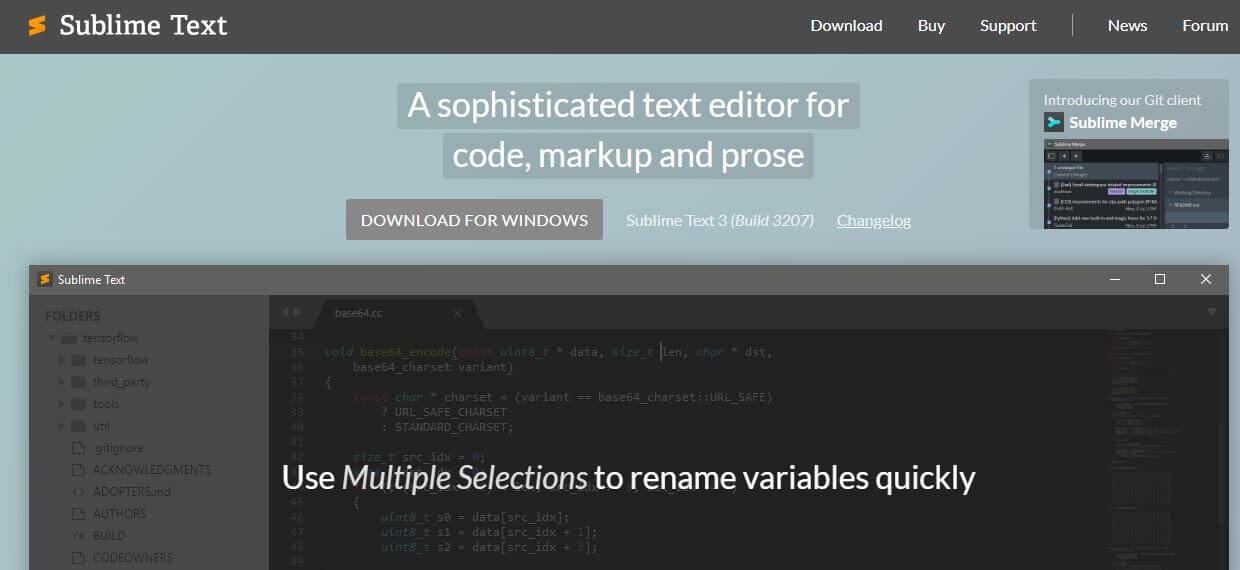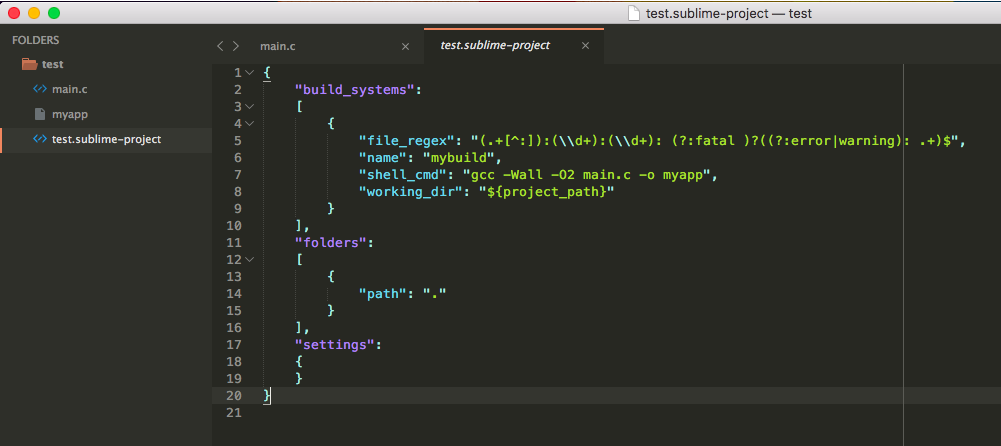
The below was written for clangd, but much applies to cquery and ccls as well.
If you are using Sublime Text then follow these steps to get a template. Open sublime and go to toolsdevelopernew snippet and click on it. Replace the existing code with the code written above and save it with some name. If you are using some other text editor, here is the template you should use: #include. Obviously, Sublime Text 2 or 3 is a popular cross-platform source code editor and compiler for compiling and running programming code including C/C. If you want to know more about Sublime Text or want to download and install, you can check there. You can compile, build and run on Sublime text c compiler. Sublime Text can now utilize your GPU on Linux, Mac and Windows when rendering the interface. This results in a fluid UI all the way up to 8K resolutions, all while using less power than before. The text editor called Sublime Text, the compiler Clang, and your Mac terminal can all work together so you can write simple programs on your Mac. I am running on the assumption for now that you have already installed Clang and Sublime Text on your computer. Use the Power of Three for Writing & Compiling in C: Write a Program in Sublime Text. ⭐ Kite is a free AI-powered coding assistant that will help you code faster and smarter. The Kite plugin integrates with all the top editors and IDEs to give.
CCLS#
Build and install from source or download for your distribution.See the ccls wiki for more details.
Clangd#
To use clangd on Debian/Ubuntu, add the apt repositories described here.After that, install with e.g. apt install clang-tools-9. The clangd executablewill have a version number suffix. For instance, clangd-9. You will thus have toadjust your 'clients' dictionary in your user preferences.
To use clangd on Mac, use Homebrew: brew install llvm. The clangd executablewill be present in /usr/local/Cellar/llvm/version/binYou probably need to install the Xcode developer command-line tools. Run the following in a terminal:

wchar_t.h:Sublime Text C++ Compiler Machine

To use clangd on Windows, install LLVM with the LLVM installer,and then add C:Program FilesLLVMbin to your %PATH%.

Compilation database#

For any project of non-trivial size, you probably have a build system in placeto compile your source files. The compilation command passed to your compilermight include things like:
- Include directories,
- Define directives,
- Compiler-specific flags.
compile_commands.json#
Like any language server, clangd works on a per-file (or per-buffer) basis. Butunlike most other language servers, it must also be aware of the exact compileflags that you pass to your compiler. For this reason, people have come up withthe idea of a compilation database.At this time, this is just a simple JSON file that describes for eachtranslation unit (i.e. a .cpp, .c, .m or .mm file) the exactcompilation flags that you pass to your compiler.
It's pretty much standardized that this file should be calledcompile_commands.json. clangd searches for this file up in parentdirectories from the currently active document. If you don't have such a filepresent, most likely clangd will spit out nonsense errors and diagnostics aboutyour code.
As it turns out, CMake can generate this file for you if you pass it thecache variable -DCMAKE_EXPORT_COMPILE_COMMANDS=ON when invoking CMake. It willbe present in your build directory, and you can copy that file to the root ofyour project. Make sure to ignore this file in your version control system.
C Compiler For Mac
If you are using a make-based build system, you could use compiledbto generate a compile_commands.json.
Since header files are (usually) not passed to a compiler, they don't havecompile commands. So even with a compilation database in place, clangd willstill spit out nonsense in header files. You can try to remedy this byenhancing your compilation database with your header files using this project called compdb.
Sublime Text C++ Compiler Mac
To generate headers with compdb, read this closed issue.
You can also read about attempts to address this on the CMake issue tracker, along with the problemof treating header files as translation units.
Sublime Text C
compile_flags.txt#
Typescript Sublime Plugin
Another way to let your language server know what the include dirs are is by hand-writing a compile_flags.txt file inyour source root. Each line is one flag. This can be useful for projects that e.g. only have a Visual Studio solutionfile. For more information, see these instructions. Creating this file by hand is a reasonable place to start if your project is quitesimple.